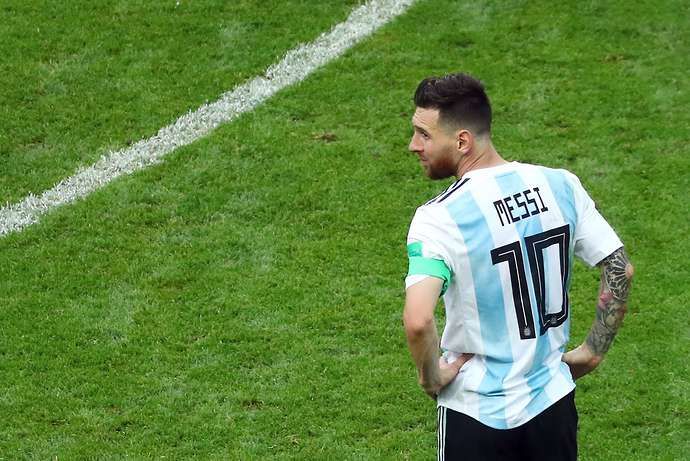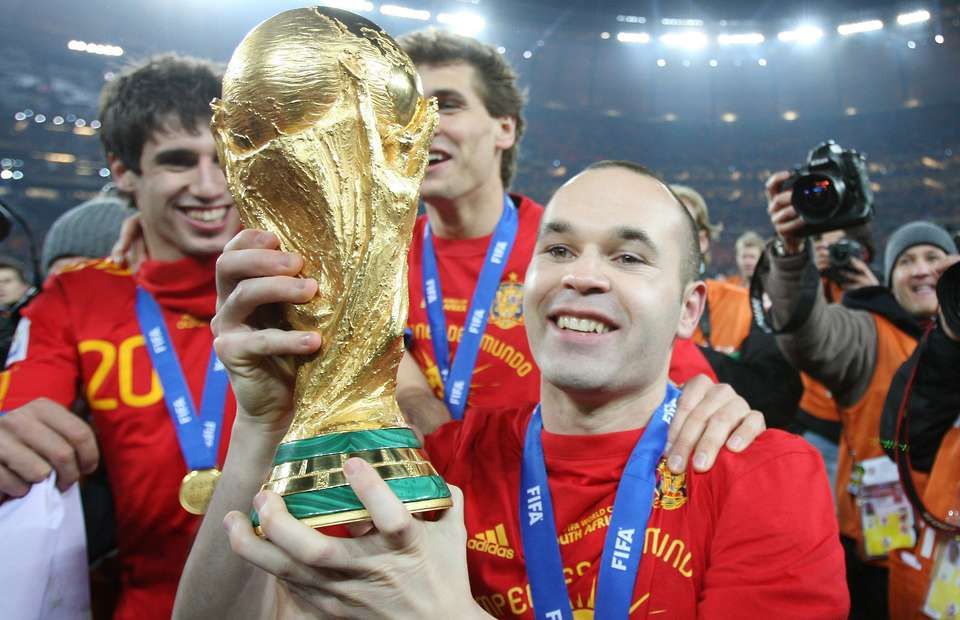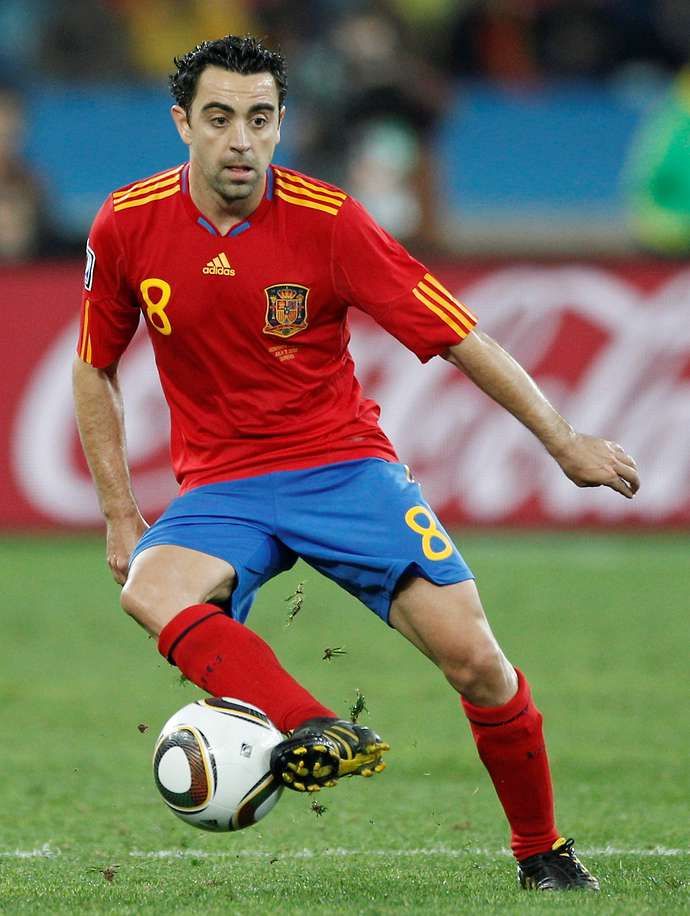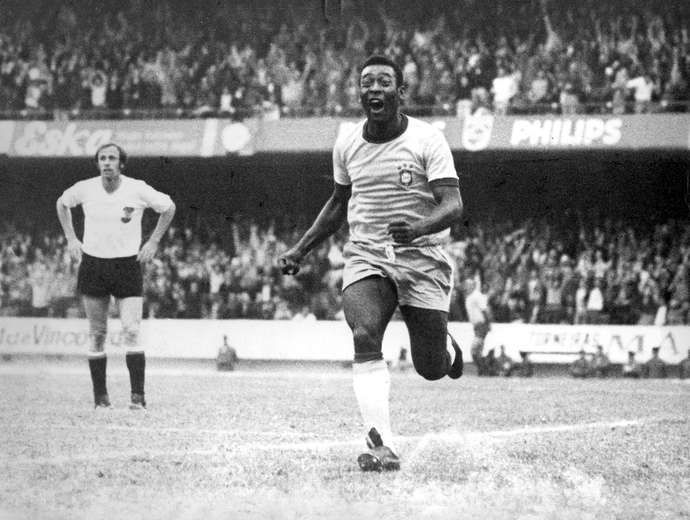Lionel Messi is a football genius whose status as one of the game’s all-time greats was already secured before he turned 30.But his international career has been a disappointment - and something that his critics love to point out.The Argentina star has appeared in four major finals with his country and lost every single one.His most recent heartbreak came four years ago at the 2016 Copa America, where Messi missed his penalty as Argentina were beaten by Chile in a shootout.It’s left the six-time Ballon d’Or winner without an international honour. He’s 33 years old now and time is running out. Top 10: Best players from international footballAnd it's due to his record with Argentina that we’re not ready to put Messi in the top 10 as we rank the best international players of all time.These are the 10 players who shone when they represented their country. Club achievements are thrown out of the window - we’re talking World Cup winners and others who delivered on the international stage.Let’s get into it.10. Xavi
Top 10: Best players from international footballAnd it's due to his record with Argentina that we’re not ready to put Messi in the top 10 as we rank the best international players of all time.These are the 10 players who shone when they represented their country. Club achievements are thrown out of the window - we’re talking World Cup winners and others who delivered on the international stage.Let’s get into it.10. Xavi
- Nationality: Spain
- Caps: 133
- Honours: 1999 FIFA World Youth Championship, 2000 Olympic Silver Medal, 2008 UEFA European Championship, 2010 World Cup, 2012 UEFA European Championship
Xavi was at the heart of Spain’s dominant run between 2008 and 2012, which was one of the best streaks in football history.
He played with such grace and composure, possessing the ability to produce a defence-splitting pass at any moment.
The former Barcelona star isn’t the only Spaniard to play in those sides to make this list.
9. Lev Yashin
- Nationality: Soviet Union
- Caps: 74
- Honours: 1960 UEFA European Championship, 1956 Olympic Gold Medal
Yashin, the only goalkeeper to win the Ballon d’Or, revolutionised his position during the 1950s and 1960s.
Dressed in all black, his huge frame and aggressive approach helped him become the first shot-stopper to command his penalty area.
He appeared in three World Cups and achieved success with the Soviet Union at the 1956 Olympic Games and 1960 European Championship.
8. Gerd Muller
- Nationality: Germany
- Caps: 62
- Honours: 1972 UEFA European Championship, 1974 World Cup
Muller notched 68 goals in 62 games for West Germany, including 14 in two World Cups.
His run in the early 1970s was extraordinary. The striker netted 10 goals at Mexico 1970, won the European Championship in 1972, then scored the winning goal as West Germany defeated the Netherlands in the 1974 World Cup final.
Muller had an incredible impact on the national team.
7. Andres Iniesta
- Nationality: Spain
- Caps: 131
- Honours: 2001 UEFA U17 Championship, 2002 UEFA U18 Championship, 2008 UEFA European Championship, 2010 World Cup, 2012 UEFA European Championship
A magician with the ball at his feet, Iniesta in his prime helped Spain rule international football between 2008 and 2012.
He was stunning at the 2012 European Championship, being picked as the Player of the Tournament as Spain made it three trophies in five years.
Two years before that, he scored the winning goal as Spain won the World Cup.
6. Ronaldo
- Nationality: Brazil
- Caps: 98
- Honours: 1994 World Cup, 1996 Olympic Bronze Medal, 1997 Confederations Cup, 1997 Copa America, 1999 Copa America, 2002 World Cup
Unfortunately, injuries meant Ronaldo only played at his peak for a few years.
But he was utterly dominant during that time.
His absence from the 1998 World Cup final remains one of football’s biggest mysteries, but he bounced back in style in 2002 by scoring eight goals, including two in the final, to help Brazil win the tournament.
5. Lothar Matthaus
- Nationality: West Germany
- Caps: 150
- Honours: 1980 UEFA European Championship, 1988 Olympic Tournament Bronze medal, 1990 World Cup, 1996 UEFA European Championship
West Germany’s powerful sides of the 1980s and 90s were spearheaded by Matthaus, who possessed exceptional positional sense, work rate and technical skills.
He led by example as a tenacious midfielder before becoming a sweeper in the closing stages of his career.
4. Franz Beckenbauer
- Nationality: Germany
- Caps: 103
- Honours: 1972 UEFA European Championship, 1974 World Cup
The ultimate leader.
Beckenbauer played with elegance and possessed exquisite leadership skills. Not only that, but ‘Der Kaiser’ is credited with reinventing the role of the modern sweeper.
After captaining West Germany to glory at the 1972 European Championship, Beckenbauer then led his country to a famous victory over the Netherlands at the World Cup two years later.
Beckenbauer and his teammates marked Johan Cruyff out of the game, preventing the Dutch from playing their ‘Total Football’ way.
3. Ferenc Puskas
- Nationality: Hungary
- Caps: 85
- Honours: 1952 Olympic Gold, 1953 Central European Champion
Puskas scored 84 goals in 85 games for Hungary, a truly remarkable return.
He was part of the Hungary side that won Olympic gold at the 1952 Games in Helsinki and reached the World Cup final with his country two years later, with West Germany coming out on top in controversial fashion.
Puskas was awarded the Golden Ball for best player at the tournament.
2. Pele
- Nationality: Brazil
- Caps: 92
- Honours: 1958 World Cup, 1962 World Cup, 1970 World Cup
Pele’s goalscoring numbers have been called into question as the years have passed, but there can be no denying his impact on Brazil's national side.
He burst onto the scene at the 1958 World Cup, scoring a hat-trick in the semi-finals and twice in the final at the age of 17.
Twelve years later, he would lift the Jules Rimet Trophy for the third time in his career as part of one of the strongest Brazil teams in history.
Pele scored 77 times in 92 internationals and his creativity made him so much better than everyone else around him.
1. Diego Maradona
- Nationality: Argentina
- Caps: 91
- Honours: 1979 World Youth Championship, 1986 World Cup
Diego Maradona. The very best.
Maradona captivated the world whenever he stepped onto the football pitch. The Argentinian dazzled at the 1986 World Cup in Mexico, delivering La Albiceleste’s second title with one of the most dominant showings the game has ever witnessed.
Unlike his counterpart Lionel Messi, Maradona was able to drag an adequate group of teammates to triumph on the world stage. It was a case of giving ‘Dios’ the ball and letting him work his magic.
It’s easy to see why many Argentinians consider Maradona, not Messi, their greatest ever player.






















